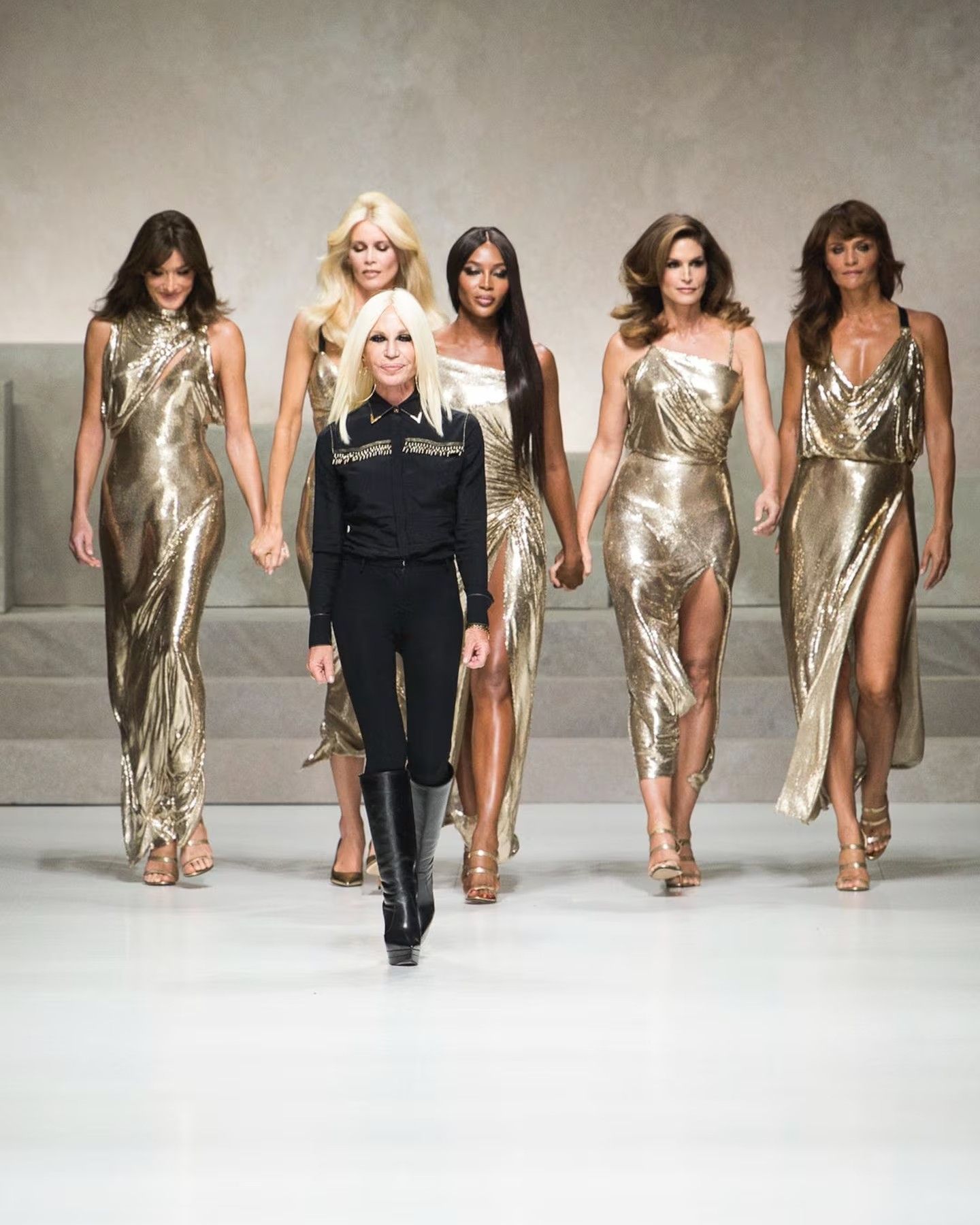
Could the Prada Group acquire Versace? After the Tapestry debacle, Capri Holding has put the legendary brand up for sale.
Between 2024 and 2025, the collapse of the deal between Tapestry and Capri Holdings caused such significant financial disruptions, also due to the generalized luxury crisis, that the American group behind Michael Kors is reportedly considering selling one of its most important assets: Versace. In recent weeks, there was even speculation that Donatella Versace might step down from the brand's creative direction, but today Il Sole 24Ore reported even more shocking rumors: according to increasingly insistent speculation, the Prada group is seriously considering acquiring the brand. If confirmed, such a move could reshape the sector's dynamics in Italy and globally. The Prada Group is no stranger to such expansionist ambitions: between the 1990s and early 2000s, fueled by the global success of Prada, the group began acquiring renowned minimalist brands such as Helmut Lang and Jil Sander. Back then, however, things did not go well, and both brands eventually changed hands – but today, the Prada Group enjoys a significantly stronger position than it did twenty years ago, and indeed, the outcome could be different. But would it make sense for Prada to acquire Versace?
Versace has been owned by Capri Holdings since 2018, when the luxury multinational acquired the Italian maison for approximately 1.83 billion euros from the founding family and the American investment fund Blackstone. In subsequent years, Capri worked to enhance the brand, significantly increasing its revenue, which surpassed $1.1 billion in 2023. However, with the contraction of global demand recently, sales have begun to falter. Matters worsened after the failure of the merger with Tapestry, a U.S.-based group owning brands like Coach and Kate Spade, which was blocked by a ruling from the federal court in New York deeming the operation a threat to competition in the luxury market. The $8.5 billion merger would have created a conglomerate with a dominant 59% market share in its segment, a dominance deemed unacceptable by antitrust authorities. Following the failed operation with Tapestry, Capri Holdings has had to rethink its strategies and now appears to be streamlining its operations, focusing on accessible luxury brands and setting aside the challenging world of high-end luxury. The news that the group has commissioned Barclays to explore the market and present the dossier to potential buyers has been interpreted as a clear signal that the group might be considering the sale of one of its most prestigious brands.
@gollancemoda Donatella Versace and her view on luxury Do you agree with her? #gollancemoda #donatellaversace #versace #interview #luxury original sound - Gollance Moda
As reported by Il Sole 24Ore, Prada now seems to be one of the most credible names for the acquisition, having received Versace's dossier through Citi, one of the financial advisors involved. According to rumors, the group is currently evaluating the operation with its legal and financial advisors. This is not the first time the group has eyed Versace: in 2018, it considered a potential acquisition before stepping back. But today, as mentioned, the market conditions and the group's promising growth prospects could make the operation more feasible. A key point in the negotiation will be Versace's valuation, which, now that sales are declining, could make it a more attractive acquisition compared to the past. After all, it is a brand with absolute recognition and all the potential to return to prosperity even in a short time. If the operation were to materialize, the acquisition would allow the group to expand its range of offerings, strengthen its presence in key markets, and create a powerful industrial synergy. However, Prada does not seem to be the only potential buyer: according to rumors, both Exor and Kering might be interested in the brand. And who could blame them? The only certainty, for now, is that something is about to change.












































